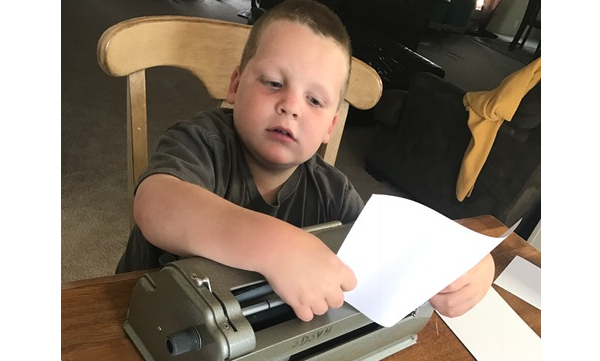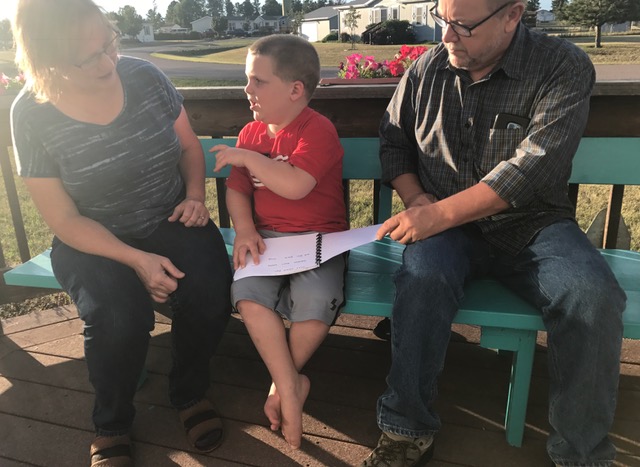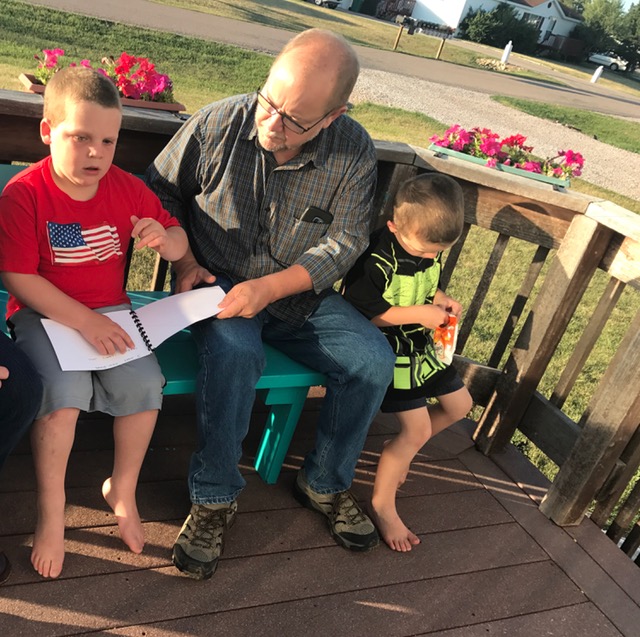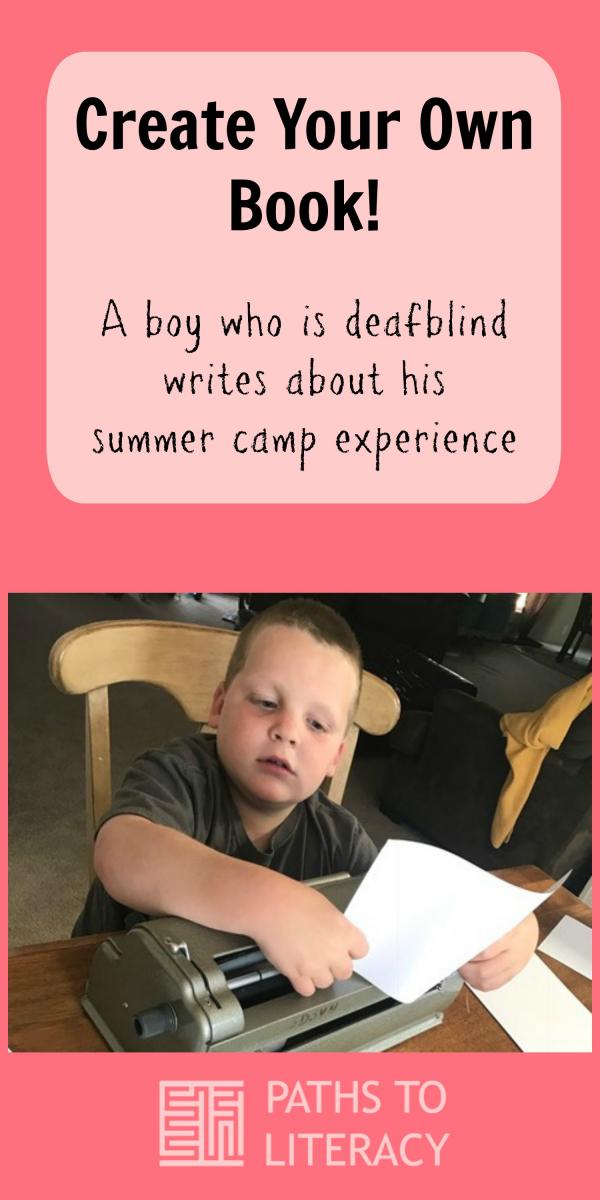Braille Book about Deaf Camp Experience

I have made many experience books with and for Liam before. An experience book is a book that is created for, by or with a student that tells the story of an experience they have had. In the past, while Liam was a pre-braille and early braille reader, I was the one that had created the books for Liam about his experiences and we usually collected "artifacts" or tactile symbols that represented various parts of an experience. He had helped some, but it was mostly me. Now that he is soon to be a third grader, Liam reads and writes braille. I wanted to give him the opportunity to create a book by himself about his experience!
- Cardstock Paper
- Binding Machine
- Liam wrote the cover page.
- I asked Liam what happened on our trip. He was the one that decided what went into his book and he wrote the sentences by himself. I tried to give as little input as possible, as I wanted this book to be his words and I wanted him to have ownership of his book.
- I helped with spelling and grammar as needed. I allowed Liam to make some mistakes mostly in the tenses (for example swim vs. swam as that is a completely separate language lesson. I corrected some, however I didn't want to stop him for every little error so it wouldn't be overwhelming). My objective was for him to get his thoughts down and we did get the spelling correct with the proper contractions. It is an option to revise and rewrite the book at a later time.
- When the pages were completed, Liam helped me bind the book with the binding machine.
This video is captioned, so be sure to turn on the captions.
Deaf Camp by Liam
Deaf Camp far. Grandma, Mom, Leslee, Liam and Finn Drove long.
I swim. I eat three times. I rode boat.
I meet new friends. Jaydan, Jeremy John
I climbed. I touched bell.
Liam proudly shared his book with me. We then called Grandma and Papa over so that he could read the book to them also!


Experience Book Pros:
There are many positive reasons to create an experience book with children of all ages. Children can write about their experiences in print or braille, or use pictures, tactile symbols, or other materials to share their stories.
- Experience books can help guide instruction. I was able to use this book to assess what skills Liam was proficient in and to see areas where he could use more support.
- This project was very motivating for him and he was confident with his writing and sharing his work. Experience books are a way to continue to support a love for literacy!
- Experience books are always a great tool to support and encourage communication.
Liam's previous experiences books (starting with the most recent):
We hope you'll try making your own experience books with your child!
For children who are not yet reading print or braille, you can collect objects or bits of tactile materials to illustrate the book, with each item representing part of the experience.

